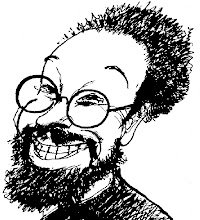Since I finished my novel more than a year ago, I've been working on a family history/memoir. (I'm pretty sure it's not going to be a memoir/family history.) For most of the time, I've been transcribing family letters. Members of my family have lived in the same house since 1929, and as people came and went over the years, they left behind things they probably intended to come back for but never did.
It's meant for a full attic.
In August, I went down to the South Carolina town one set of grandparents came from. I'd always intended to finish the research before I begin to write--making notes along the way, of course, so that I wouldn't forget important ideas. When I came back from the South, though, I was so excited by what I'd found in libraries and archives I decided I had to write while it still burned in me.
As part of my research, I've been reading a book called "History of the American Negro and his Institutions, South Carolina Edition." A kind of "Who's Who," it was published in 1919 by a man named Arthur Bunyan Caldwell. I don't know much about the history of the book, but Caldwell published seven volumes covering five Southern states and the District of Columbia. (One state may have taken up two volumes.) Each book includes profiles of about 300 prominent black men. There are a few women--four in the South Carolina volume.
With something like 5,000 family letters to transcribe, it's not as if I don't have enough to do. But I decided to go through Caldwell's South Carolina book a few days ago, making a count of the people profiled, their occupations and whether they'd been born before the end of the Civil War.
Interestingly, only about 75 were born before the end of the Civil War. Most of those, of course, were born in slavery, though a few had been free. Most of the men were preachers, the majority Baptists, followed by African Methodist Episcopalians. But there were doctors, lawyers, dentists, school teachers, college professors and college presidents. There were businessmen, farmers, leaders of fraternal organizations, undertakers, and insurance salesmen. One woman was a doctor, another a nurse.
A year or so ago, when I told a friend (she's white) about a relative who'd been a lawyer and college professor and administrator in the South in the late 1800s and early 1900s, she asked, "Was his wife white?" I laughed and said, "Of course not." Still, though I'm heir to that history, I never imagined then the variety I'd find in Caldwell's book.
Of course, the men and women he profiled weren't typical of black South Carolinians in 1919. They'd worked hard, seized opportunities, been lucky. In the process of getting college educations, going to medical school, and buying land, they endured privations and humiliations most of us can't imagine. When Caldwell allows them to speak, they are too often accommodationist in the Booker T. Washington vein. They had to be, of course.
Nonetheless, their example and their achievements speak powerfully across the years. Sarah Palin? Rick Perry? Michelle Bachmann? John Boehner? We've survived worse; we'll survive them too.
Sunday, September 18, 2011
Subscribe to:
Post Comments (Atom)

No comments:
Post a Comment